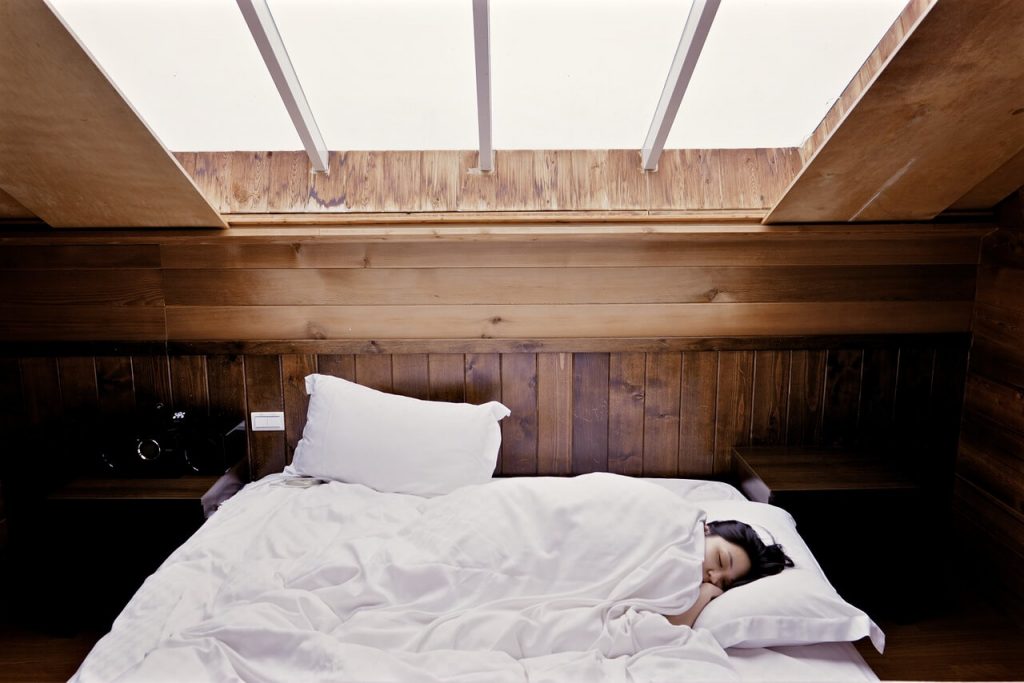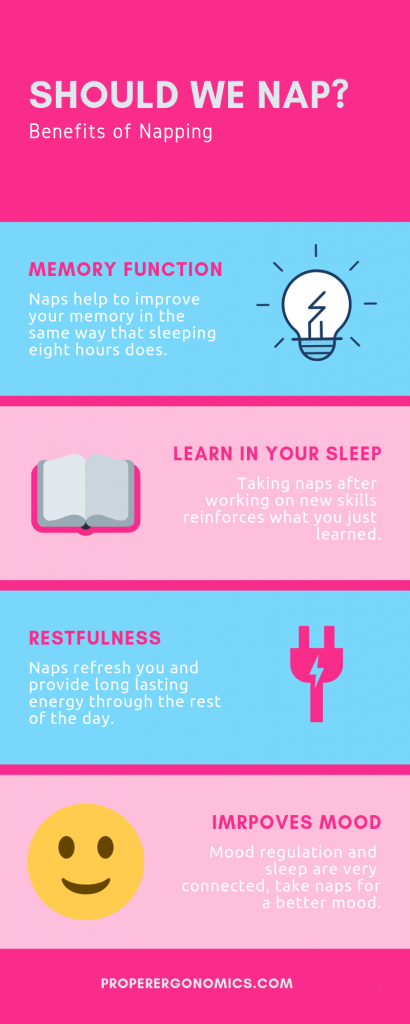When most people nap, they often feel like they wake up in a more tired state than before they had fallen asleep. It happens frequently; you lay down with the intention of catching up on a little sleep only to wake up an hour later feeling like you’ve been awake for days. It can take a long time to snap out of this groggy feeling, and it’s not always obvious if taking a nap was actually beneficial or not. What’s really going on when we nap? We’ll answer that along with a few other nap related issues.
How Napping Affects Your Brain Function
Before we even get into this, we should answer the question of whether you should take that nap in the first place. The good news is that napping is good for you despite the way you might feel when you wake up.
Research indicates that naps accomplish the same goal of increasing the level of skill acquisition and memory skills. This is evident in several ways, but perhaps the most telling is a memory test in a 2011 study that showed napping participants greatly outperforming those who did not take a 90-minute nap.
How to Avoid the Post-Nap Stupor – Nap Duration is Key
Research has shown us that one of the most important determinants of how a nap affects you is the time spent napping. It’s not necessarily about there being a nap length that’s outright better than another. Instead we see differences in how varying lengths of naps affect us, but in the end, they’re all positive for you no matter the duration.
- Longer naps, varying from 30 minutes to 90 minutes or longer, are the ones that leave us feeling disorientated and sleepy when we wake.
- Shorter naps, specifically under 15-20 minutes, will leave you feeling pretty refreshed for a couple of hours at most.
So, you can avoid a post-nap stupor if you take a really short nap. This is likely because the amount of time spent sleeping is not enough to enter any of the deeper sleep states. When you wake up feeling groggy you are experiencing what is called “sleep inertia”.
That Groggy Feeling is Sleep Inertia
Sleep inertia is that short period after you wake where you still feel tired. We have all experienced it at one point or another; you wake up from a nap feeling disoriented instead of refreshed. This time actually poses a potential danger for many people working in occupations that require frequent napping.
Unfortunately, there is a multitude of vehicle-related and work-related accidents every year that are credited to sleep inertia. This is why an issue of sleep ought to be treated with the utmost importance; there are positive safety implications for all of us when we address sleep-related problems.
Sleep inertia does not necessarily have the same immediate effect on everybody’s personal life, but any one of us could be impacted by this issue.
Avoiding the Dangers of Sleep Inertia
The most immediate thing to do, if your schedule and occupation allow it, is to limit the length of your naps to being very short. Research points towards the lack of slow wave EEG activity as being the cause for short naps not resulting in sleep inertia. This makes sense with the different duration of naps; waking up in the middle of deep sleep is sure to result in a more difficult time waking.
A 2016 study by the National Institute of Occupational Safety and Health did a series of tests involving several different possible countermeasures for sleep inertia. They did not find much validity in most of the methods presented, but one possible useful finding came out of it.
Is there some merit to caffeine before a nap?
Caffeine right before a nap seemed to positively affect alertness afterward and did not interfere with falling asleep. Unfortunately, the study did not account for different lengths of time, so we cannot conclude whether the effectiveness of the caffeine is related to the twenty-minute length. Overall, avoiding sleep inertia is a complex issue that warrants more research for better answers.
Nap Responsibly
Napping yields several benefits with very few consequences for most of us. It is likely you will face sleep inertia unless you restrict yourself to extremely short naps, but this only poses a risk for those who opt to do something like operating heavy machinery immediately after napping.
Of course, this is a necessity for those in certain occupations. More research will certainly lead us to ways that can improve the safety of those facing this sleep issue. For now, limiting the length of your naps appears to be the only reliable way to avoid sleep inertia.



